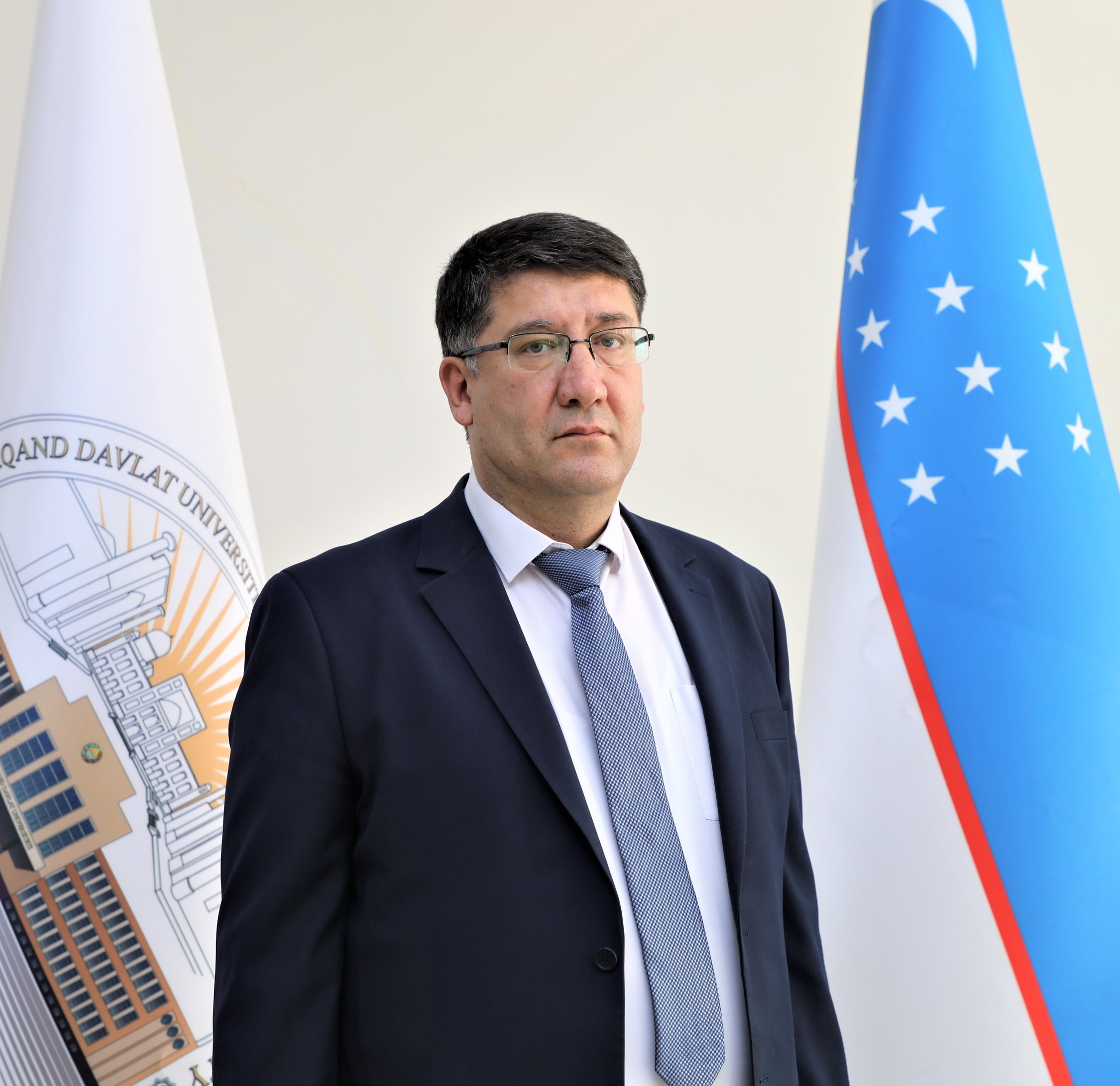AKHATOV AKMAL RUSTAMOVICH
LEADING SPECIALIST IN THE FIELD OF INFORMATION PROCESSING, CONTROL AUTOMATION, ARTIFICIAL INTELLIGENCE TECHNOLOGIES
Akhatov Akmal Rustamovich
Vice-Rector for International Cooperation
Research Direction:
Improving the quality of information processing in electronic document management systems through redundancy; neuro-fuzzy and hypersemantic reasoning systems to improve the reliability of image recognition and classification; optimizing the control of non-stationary systems; improving data reliability in distributed registry mechanisms, real-time processing of big data.
The main results of scientific research:
Created a set of models, methods and algorithms to improve the reliability of transmission and processing of text data in electronic document management systems on the basis of pr- redundancy. Developed models and methods for the use of non-trofezzy and hypersemantic networks, construction of parallel algorithms for data mining. Ant has created models and methods for algorithm-based control optimization. It has been successfully applied in systems for automation of information processing and activity monitoring in medical institutions. An intelligent software product “Sound and Text Transcription”, which creates transcripts by recognizing and processing voice and text based on speech signals, has been developed and implemented as a web application.
Main scientific publications:
1. On a model of forming the optimal Parameters of the Recognition Algorithms. International journal of Maritime Information and Communication Sciences. - Korea, 2011. - Vol. 9, NO 5, october 2011. – pp. 607-609.
2. Methods for controlling the authenticity of textual information transfer on the basis of statistical and structural redundancy. International Journal of Automation and Computing, Chinese Academy of Sciences, China. - Volume 9, Number 5 (2012). - p.p.518-529.
3. Methods and Algorithms of Neuro-Fuzzy System for Control of Texts Transfer and Processing in the Electronic Documents. “Applied Technologies and Innovations”, Prague Development Center. – Prague, 2012. – Volume 8, November 2012. – pp.27-37.
4. Development of Models and Algorithms for Improving the Reliability of Transfer of Information Based on the Application of Cryptographic Methods to the Distributed Register Technology. International Journal of Control and Automation Vol. 13, No.2, (2020), pp. 1118 – 1129,
5. Principles of analysis and processing of video information in the identification of personal movement. “Science and innovation” international scientific journal. Volume 2, issue 5, may 2023. Uif-2022. - 119-124 b.
6. Braille classification algorithms using neural networks. Proceedings of The International Conference on Artificial Intelligence, Blockchain, Computing and Security. 24-25 February.2023 y.
7. Real-Time Big Data Processing Based on a Distributed Computing Mechanism in a Single Server. Stochastic Processes and Their Applications in Artificial Intelligence, 2023.
8. Development of skeleton-based gait models for human movement recognition based on neural networks. AIP Conference Processing, (2024), Research article. May 06, 2024, https://doi.org/10.1063/5.0210297


